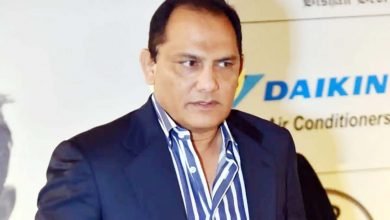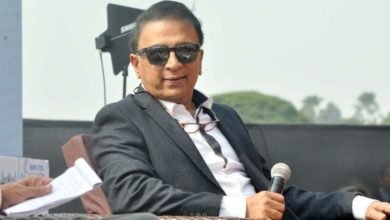CRICKETENGLISHLATEST UPDATESNEWS
Lodha Committee Could Have Handled Certain Issues Better: Ratnakar Shetty

At a time when the BCCI – with new management led by Sourav Ganguly – are going through a lot of changes and could see more changes to its constitution and manner of working, former administrator Ratnakar Shetty believes that certain issues – including the conflict of interest matter – could have been dealt with more fairly.
“The Justice Lodha committee met cricketers, journalists and a lot of people who haven’t seen how the BCCI functions. They heard only one part of the story. The BCCI counsel did tell the Supreme Court that the committee hadn’t heard what the board had to say. The Justice Lodha Committee met some 70-odd people who gave opinions based on their own perceptions. Had the BCCI’s position been heard, a lot of issues could have been streamlined,” Shetty told Mumbai Mirror.
Shetty, also known as ‘The Professor’ because of his background as a Chemistry teacher, is often called upon to use his experience to help the BCCI get out of unwanted positions and according to him the BCCI lost their way in 2013 because they lost a perception battle after their dirty laundry was aired in public.
“All said and done there is no doubt that BCCI is the best-run sports body in India and in world cricket too. But it was a victim of public perception. Nobody expected the 2013 spot fixing saga to take the ugly turn it did. The board’s infighting among the top guns went out in public. The perception grew that the BCCI was brushing everything under the carpet,” he explained.
“The angst was understandable, for it involved public money.”
Shetty, who had been the constant link between the BCCI of old and a much changed corporate one at the Wankhede since the turn of the century, has been known for his no-nonsense ways while in office, whether it was with the BCCI or the Mumbai Cricket Association.
The former administrator, who says he is unhappy with the reports he reads about the Mumbai Cricket Association’s ways nowadays, also is of the opinion that there should be a system of promotion and relegation in domestic cricket.
“I feel for the Ranji Trophy, we should go back to the Elite- 3 groups and Plate-1 group for the newly-affiliated teams. We must have a separate championship for Elite and Plate groups like in the past. There should be provision for promotion of Plate champions to Elite for the next season and demotion of the team finishing last in the group three of the Elite to Plate. In the next five years, the weaker teams will get an opportunity to develop and compete better in the longer format.”
Shetty, who is enjoying his retired life currently, also spoke about how spreading cricket across the country, including to the North-eastern states, new entrants to the domestic circuit, had been tried before in the 1990s, but it failed to spark any enthusiasm. He feels that for these states finding a place to play is the biggest challenge, especially because of the local terrain.
“Anurag Thakur, the then BCCI president in 2016, had initiated plans to set up indoor academies in the NE states — I’m sure now that the BCCI office bearers have taken over, they will implement the plans,” he said.
Like most of the founding forefathers of the IPL, Shetty is also of the belief that no one expected the tournament to turn out as big as it eventually did, but he is however happy about what it’s added to Indian cricket.
“The huge monetary benefits and the brand value figures exposed BCCI to tax authorities. The BCCI, which enjoyed tax exemption till then, had to undergo a lot of scrutiny, and in the last 12 years or so we have had to pay income tax may be to the tune of Rs 2000 crores.”
“The IPL’s success was good because it helped us attract more ladies and children to the stadiums. Cricketers became household names regardless of their background. The IPL brought in fearlessness in Indian cricketers that is so much visible these days.”
Shetty however warned that the BCCI must look into the state T20 leagues with more proactive-ness, especially on the back of the multiple fixing cases that have come out of the Karnataka Premier League.
He also urged that the Indian government work laws accordingly to make betting and match fixing a criminal offence, citing the examples of the Hansie Cronje saga and the 2013 scandal where there weren’t any criminal charges framed in either case.
“There is a need for the BCCI to step in and take strict measures, including the background check of franchises in these (state T20) leagues by the BCCI ACU. At the same time the Government of India must come out with laws at the earliest.”
“The BCCI does not have the powers to investigate into betting and match fixing, so it has to rely on inputs from the investigating agencies like ED or CBI. Unfortunately, the government has not taken any steps to bring in stringent laws to stop the growing menace in almost two decades now.”





